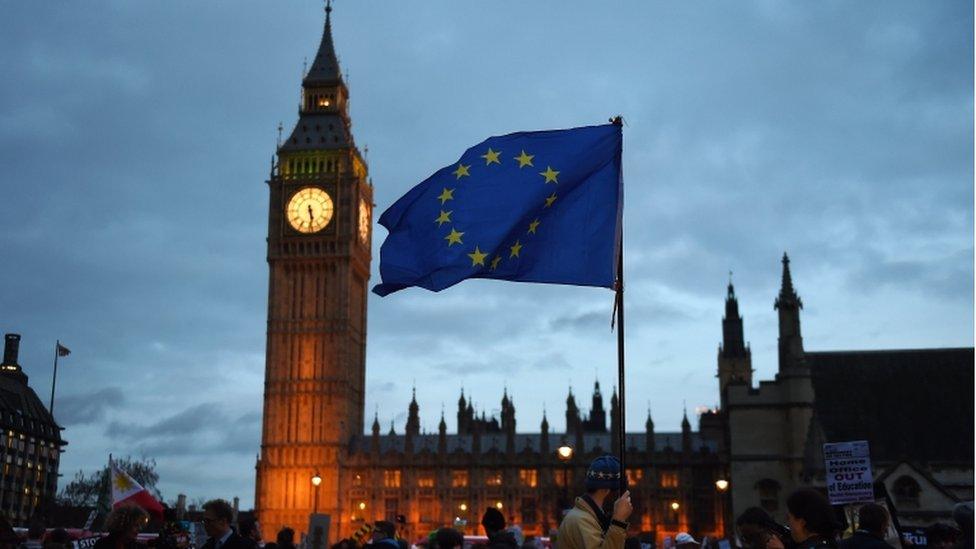Government fears trade deal 'havoc', EU diplomats say
- Published
- comments
A number of EU diplomats believe the UK government is having second thoughts about its threat to leave the bloc without a trade deal should negotiations break down, the BBC understands.
They say, in private, that the government fears the economy could be left in "havoc" if Britain left without agreeing any preferential access to EU markets.
But a government spokesman said they "did not recognise" the claims being made by the EU diplomats.
Theresa May warned in January that no deal would be better than a bad deal, should the EU try to impose a punitive trade deal.
The threat was seen by EU diplomats as lacking credibility because of the huge costs that might be imposed on the British economy without an agreement.
UK firms would have to follow World Trade Organisation rules, which would mean paying more tariffs on some goods and facing non-tariff barriers such as increased red tape.
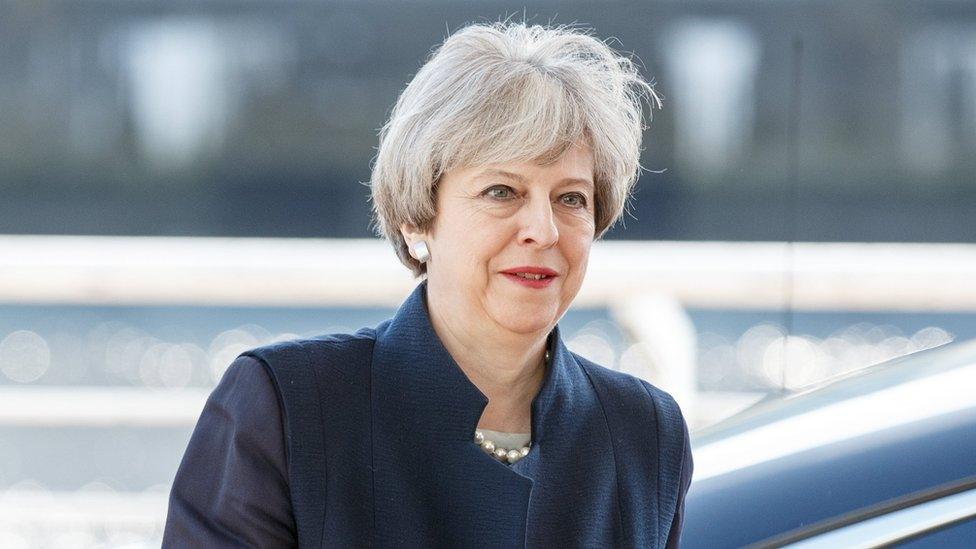
Theresa May has warned the UK will not accept a "punitive deal"
One EU diplomat said he had urged the government not to repeat the "no deal" threat in its letter triggering Article 50 this week.
"They have realised that 'no deal is better than a bad deal' won't fly," he said.
"They are worried about people in this country who have an ideological and political intention of creating chaos," the diplomat added.
"The civil service has told them it would create havoc."
As an example, he said the number of customs checks on goods would rise from 17 million per year to 350 million.
Brexit demands
Diplomats also suggested the government was becoming more pragmatic - in private - about some of its other Brexit demands.
One said that officials "don't exclude that the UK, as part of a transitional arrangement, could stay in the customs union for a limited period of time."
The diplomat said officials accepted this would allow them more time to sort of any future border arrangement for Northern Ireland.
Diplomats added they were also sensing a change in the government's rhetoric about curbing immigration from the EU.
"The British do realise that [immigration curbs] are a bad idea for British society and economy," one said. "They will focus more on control and not quantitative limits."
They added that the UK would "talk themselves out of the 100,000 thing", in reference to a government pledge to reduce net migration to below 100,000 by 2020.
'Apocalyptic' deal
Diplomats also pointed out that economic growth was picking up on the continent, meaning there would be greater competition for labour.
Earlier this month, Foreign Secretary Boris Johnson said the UK would be "perfectly OK" if there was no agreement with the EU and the consequences were not "by any means as apocalyptic as some people like to protest."
But the Brexit Secretary, David Davis, later told MPs that the government had not made an overall assessment of what "no deal" would cost the British economy.
The EU's chief Brexit negotiator, Michel Barnier, warned in the FT this week, external that no deal would have "severe consequences for our people and our economies. It would undoubtedly leave the UK worse off".
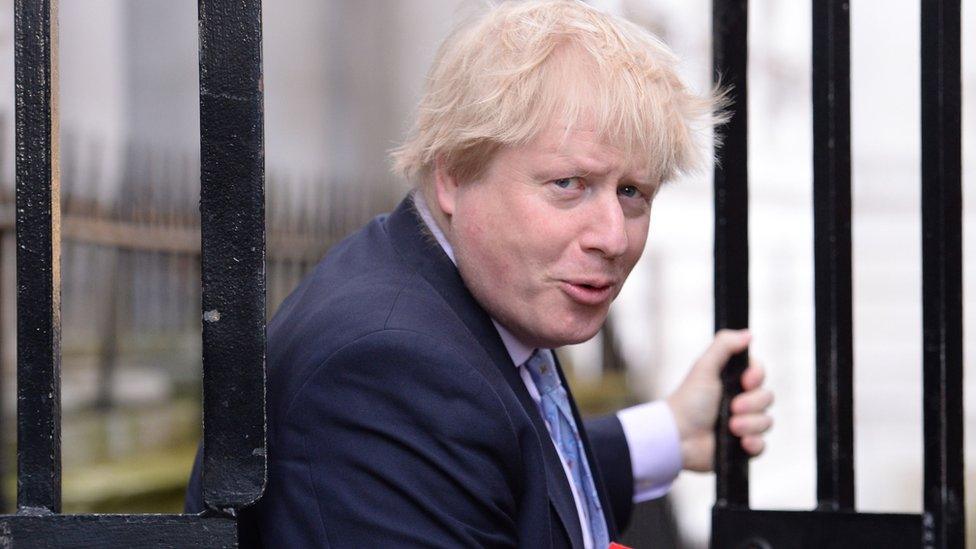
Foreign Secretary Boris Johnson thought the UK would be "perfectly OK" if there was no agreement
He predicted burdensome customs checks, lorry queues at Dover, disruption to air traffic into the UK and extreme uncertainty for four million expat UK and EU citizens across the continent.
This week, the manufacturers' lobbying organisation, EEF, urged the PM to drop her threat to leave without a deal.
They said no deal would be a "risky and expensive blow" that could result in tariffs averaging more than five percent on their members' exports to the EU.
For its part, the government said it was confident of "delivering the right deal for the UK".
A spokesman said: "We are planning for and expecting a constructive negotiation and a deal on a positive new partnership that works for both the UK and the EU.
"We have also said we would not accept a bad deal which seeks to punish the UK, and that no deal is better than a bad deal."
- Published12 March 2017
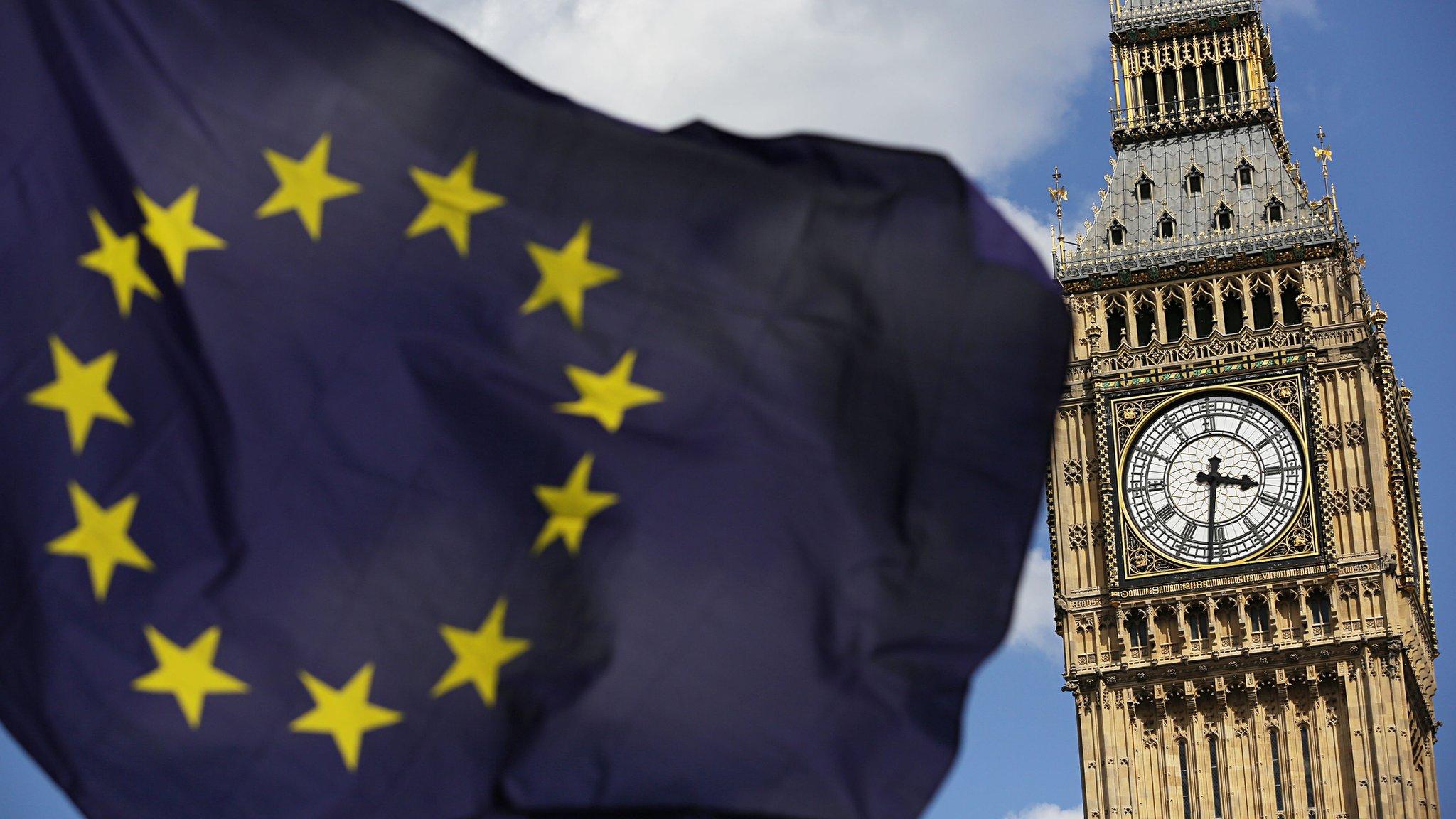
- Published14 October 2017
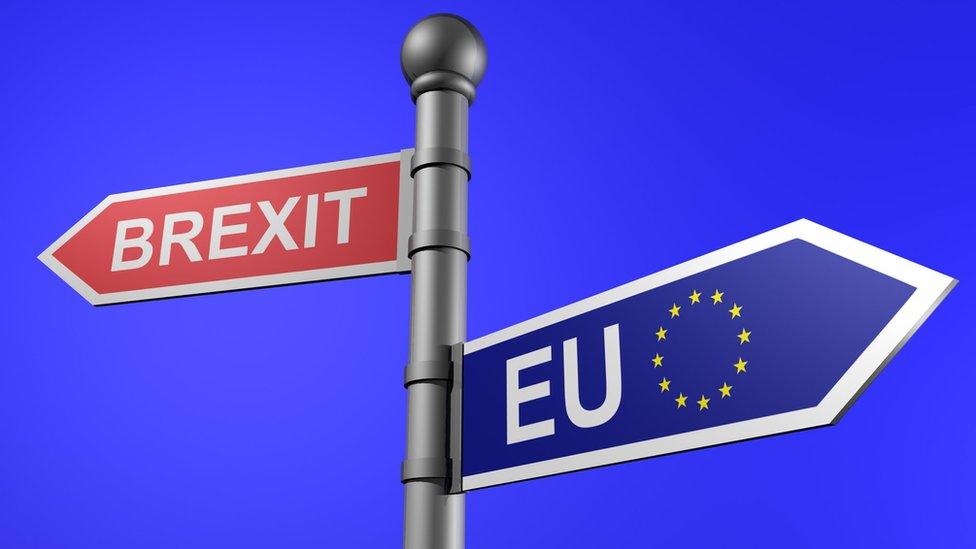
- Published21 March 2017
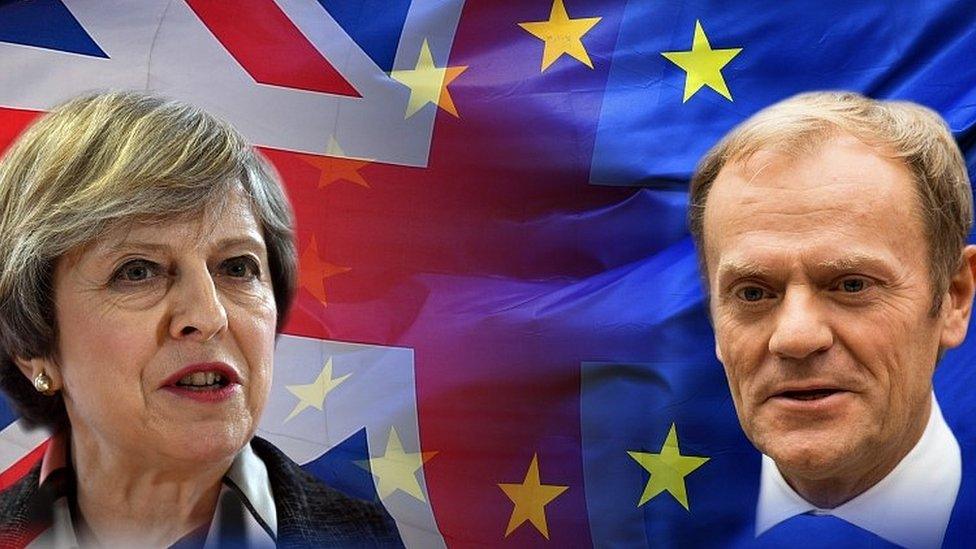
- Published25 August 2016
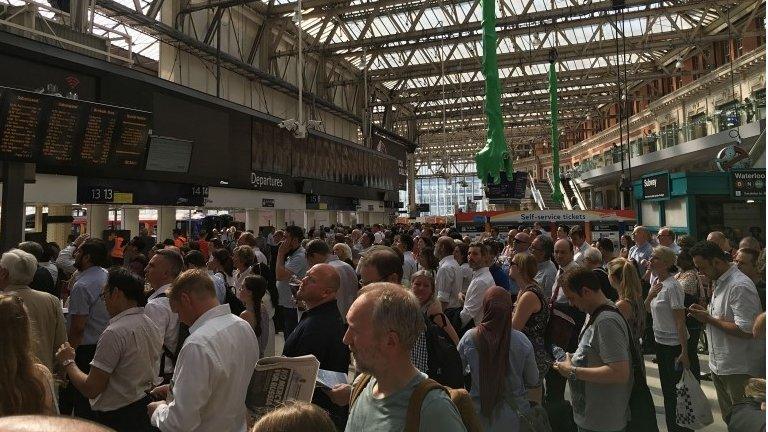
- Published29 March 2017
